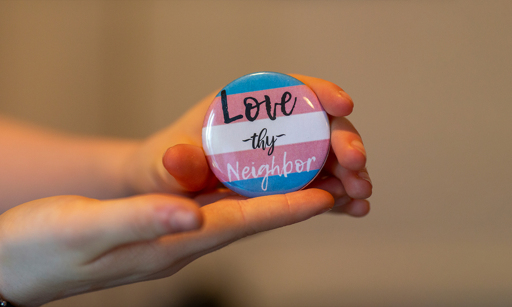When Renee Lau, a special projects coordinator at the trans-led housing and wellness center Baltimore Safe Haven, transitioned at the age of 63, she lost everything. “My marriage fell apart,” she says. “The Sears Holding Company, who I worked [with] for 30 some years, declared bankruptcy, and the business that I worked for got shut down immediately.”
That’s when Lau met Iya Dammons, the executive director at Baltimore Safe Haven, who hired her as the house manager for the organization’s senior home in 2019. Currently, Lau says Baltimore Safe Haven is the only transgender-specific housing provider in Maryland, with five different houses throughout Baltimore and a sixth property underway.
“[Baltimore Safe Haven] is the [only] housing provider for transgender people in the state that [is actually] dedicated to people within the community,” she explains, an issue that persists across the country as housing-insecure trans people of all ages seek safe, dignified shelter and learn that it often doesn’t exist.
For Beth Gombos and Ashton Otte, organizers at Trans Housing Initiative St. Louis (THISL), better access and competent service for the trans community begin with education. THISL works directly with shelters, housing providers, and other entities that might harm trans people or or turn them away.
“We’re training them to learn how to interact with and accept and serve trans and gender-nonconforming people with respect,” says Gombos, who is the organization’s cofounder and executive director.
Typically, this work begins by teaching trans identity 101: gender identity, sex, pronouns, and myth busting. “We start off by trying to build a level of understanding and basic empathy for this community,” says Otte. From there, THISL educates housing providers on anti-discrimination protocol and their responsibility to ensure care and access for the trans community.
Though equitable housing policies are needed at the federal level, trans-led organizations are not waiting for the federal government to take action. They are already taking care of their own.
Sean Ebony Coleman, founder and CEO of the Bronx-based LGBTQ grassroots organization Destination Tomorrow, says housing support goes beyond providing a safe place for unhoused people to be.
“One of the biggest issues is that everyone’s at a different level when it comes to being ready to access housing, particularly independent living,” says Coleman. “The conventional shelter model has just this one-stop-shop approach, right? It’s just ‘You’re going in, we’re going to house you, you’ll stay for a little while, [and] we’ll try to get you into transitional housing or some type of supportive housing.’ [But they’re] not really going to train you as far as getting better employment or securing a better job or even sending you back to school.”
For Coleman, getting into a shelter is just the first step. Destination Tomorrow’s housing support also includes building wraparound services that consider the care of the entire person, including offering independent living support, career and academic opportunities, culinary training, mental health care, and financial literacy programs.


